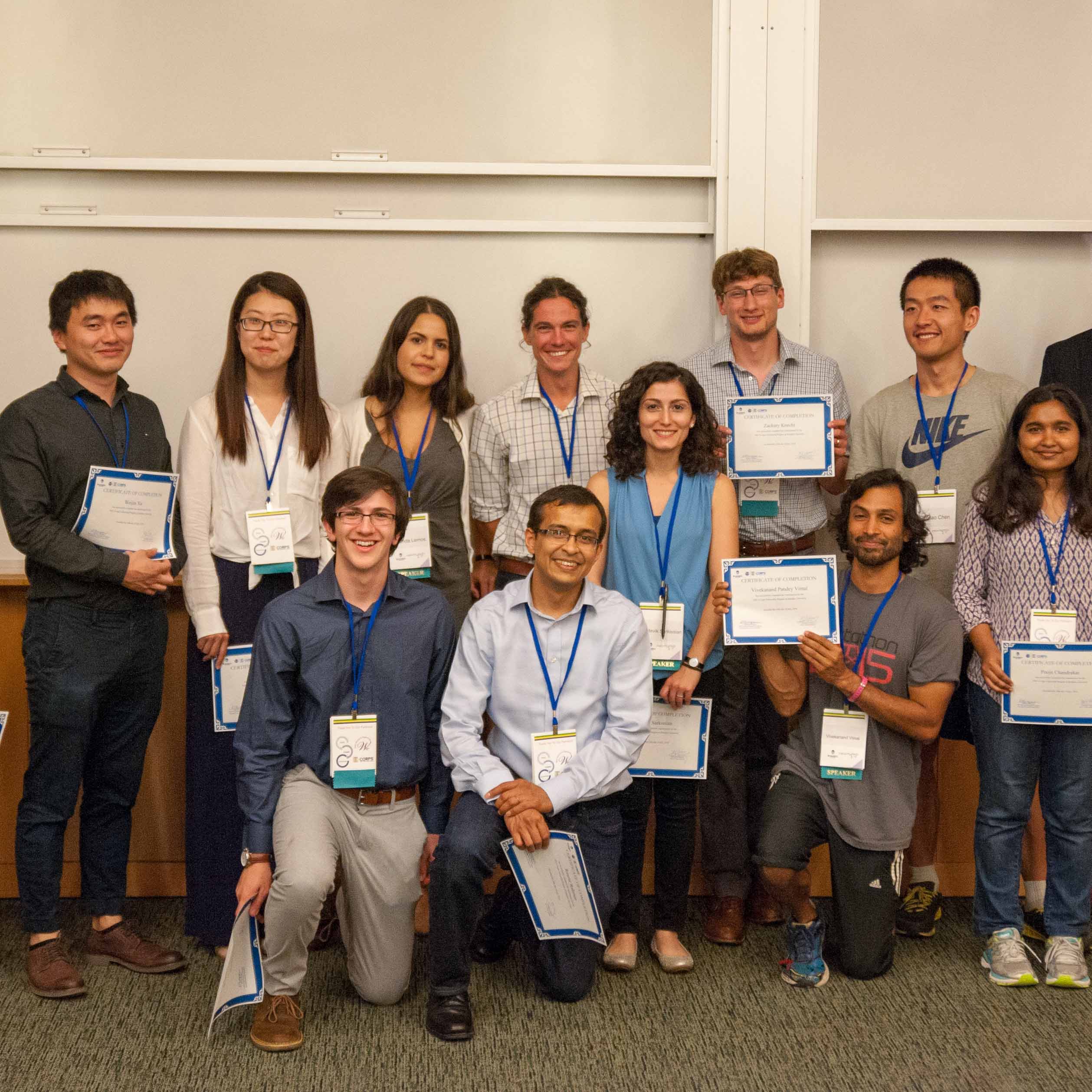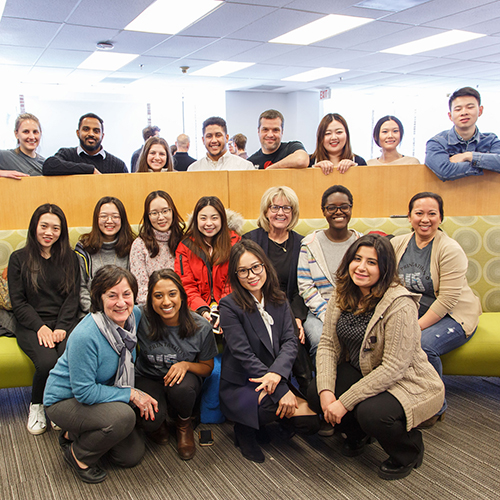
In the search for your first post-graduate job, the last thing you want to do is settle for just any job. Instead of taking on a role that provides a paycheck but no sense of purpose, you want to enter a career in which you feel your work is meaningful. The good news? You don’t have to choose between your passion for doing good and your drive to thrive professionally.
The first and most important step is identifying what criteria matter most to you in a company or an organization. Take stock of your passions, abilities and ambitions when you think about how you can contribute to the world. Consider what global challenges you want to help solve – climate change, poverty, gender equality, the achievement gap in education – and don’t just do it in your head. Visualize your plan and jot down your thoughts on a piece of paper or create a note on your phone. Then, see where your goals coincide with sectors and industries that are tackling similar problems or achieving similar results.
At this point in the job search, you know your dream job is with a company that’s making a difference. After you’ve considered your passions and interests, it’s time to get intentional about where you want to work.
Think back to your motivations – making a difference and making money. Which companies resonate with you? How do your passions align with those companies’ goals and values?
If you want a job with a purpose but find that your skills and passion lie in fields that aren’t traditionally considered to be on that track, that’s OK. Jobs are available for those with backgrounds in business, finance and economics, especially as companies begin to embrace socially responsible positions – and hard skills in these disciplines are beneficial to those organizations. Take a look at job openings at issue-based organizations, and you’ll notice that finance – and strategy-based roles exist in almost all of them.
When it’s time to apply for internships, fellowships and even jobs, don’t apply to every company. Create a short list and tailor your application materials to each.
A company with a strong brand is always more memorable than one without – and the same goes for personal branding. Building your personal brand is a critical investment in attracting valuable, meaningful career opportunities.
When recruiters eventually turn to Google to find out more about you – and they will – they aren’t just looking to verify what’s on your resume. They’re looking for confirmation that you reflect their company’s interests and values.
It’s not difficult to establish your personal brand. It just takes time and careful inspection of the information you purposefully do (or don’t) share. Here are four ways to make sure your public persona creates a lasting impact:
Your social media profiles might be the first thing a future employer comes across, so plug your name into a search engine and evaluate what comes up from the employer’s perspective. Delete any photos you’d be ashamed of if your parents saw them, or that long-lost embarrassing Tumblr page.
After your social junk purge, take a look at what’s left. Does your LinkedIn profile, personal website or blog match the vision and ethos of the companies you’d love to work for? If not, ask yourself if you are looking at the right companies. Otherwise, add keywords that represent your chosen companies’ values to your "about" pages. You might know how perfectly you’d fit in at their organization – but it needs to be clear to them from the get-go.
If you haven’t already, now is the time to get involved with what’s going on in your potential employer’s world. Engage with their social media pages and develop a digital connection with their brand. Not only will it put your name in the frame, but it will give you more insight into the company so that you’re interview-ready. As always, be professional – not spammy.
Make sure each of your profiles mirrors the unique values, voice and appearance that you’ve developed. (Your profile picture matters!) Given that your web presence is one of the first impressions employers have of you, it’s your best tool for standing out from the crowd in a positive, distinguished way.
Is there career value in volunteering?
Yes. If you’re excited about certain aspects of socially responsible companies, social justice is already a part of who you are. And the best way to make it an integral belief is to actively participate. Not only will this bring you fulfillment, but it can benefit you by putting you in front of the right people.
To get the most out of volunteering, take on leadership roles. It’s especially important to find ways to use your skills or interests – whether in finance, marketing, economics, business, real estate or global relations – to showcase that you’re a knowledgeable and trustworthy individual who will help foster growth at that organization.
If you don’t have work experience in your chosen field, don’t worry. There are plenty of organizations that provide ways to give back to your community even if you’re new to the field. At the same time, be open to new experiences to increase your options and future opportunities.
Don’t hesitate to start your involvement. Search for groups that interest you and for organizations that align with what you feel strongly about – and then jump in. Don’t wait for the perfect scenario to materialize. Remember: This is your opportunity to bring valuable skills to the causes you’re committed to.
A smart post-graduate job search requires a plan. Wildly shooting out resumes and cover letters won’t set you apart from the thousands of other candidates who are doing just that. You need to get mingling.
While volunteering is a great way to put you in front of influential, well-connected people in the fields and organizations you care about, it’s equally important to cast a wide net for the best chance of finding the right opportunity for you.
There are two particularly effective ways to start your search:
This is where getting your graduate degree – especially in a place with a global culture – can pay off. At graduate school, you can build lasting connections with professors who are experts in their fields, meet and learn from industry leaders in close, one-on-one situations and participate in immersion experiences that put you at the forefront of solving global financial issues.
Put yourself in front of the leaders you want to learn from. Attending events is one way to do this, but social media platforms such as Twitter and LinkedIn also make it easy to network if you don’t have in-person opportunities. Find your role models on social media and interact with them. See if you can earn an informational interview to gain inspiration from their stories – how they found and grew into their jobs, what challenges they face and what advice they have to offer.
As you already know, your skillset plays a vital part in making you the best candidate for a job.
Of course, you want to make a sizeable difference in your career. And when looking for a career within a company that’s socially and globally minded, in particular, it’s important to widen your skillset in real-life situations. Why? It’s critical to be able to adapt yourself effectively and efficiently in any number of company environments.
To really hone in on skills that matter, here are a few things to consider:
Mastering the nuances of business etiquette for the particular company or industry you're interested in can help you make a good first impression when you get your foot in the door.
Take advantage of study-abroad opportunities. Learn a new language. Involve yourself with as many clubs and organizations as your schedule will allow, especially ones that focus on building cross-cultural skills and relationships.
Communicate and build relationships with colleagues from different cultural backgrounds and who bring different skill sets to the table. Make an effort to reach out and learn from your peers, your mentors and your managers, and ask for opportunities to build your cultural IQ.
If you're considering graduate schools, make sure to investigate the diversity, student culture, community values and international opportunities.
You have nearly everything you need to land your dream job. Strong personal brand? Check. Relevant skills and volunteering experience? Got it. A carefully curated network? You’re a social butterfly. It all leads to the moment you’ve been waiting for: putting it all down on paper.
Here are three important tips to help your resume catapult through the clutter:
No two organizations should receive the same version of your resume. Personalize it for each opportunity to reflect what that specific organization or hiring manager is looking for.
If you don't have full-time work experience, show how your internships or school projects prepared you for the job. This is where volunteerism and a graduate degree from a school that values and emphasizes global business, networking and real-life experience all come into play.
Wherever possible, highlight the tangible results achieved in your roles in the classroom, in the field or on the job – but keep everything on one page. You have a lot to offer, but it’s important to show that through concise sentences and well-crafted bullet points.
If there’s one takeaway to remember while zeroing in on your ideal career, it’s this: You’re not like everyone else, and your career trajectory shouldn’t be, either. By taking stock of unique opportunities and then taking action in small but powerful steps, you’ll be strongly positioned to stand out and land a career with a paycheck and a purpose.
Learn more about Brandeis International Business School and the Accelerated MA program, which enables qualified undergraduates studying economics to earn their master’s degree in just one year after graduation.
Featured Stories
News Categories
@BrandeisBusiness Instagram
View this profile on InstagramBrandeis Intl. Business School (@brandeisbusiness) • Instagram photos and videos

August 3, 2018
The next big thing
July 31, 2018
Startups powered by STEAM
June 25, 2018
From the classroom to the boardroom